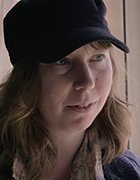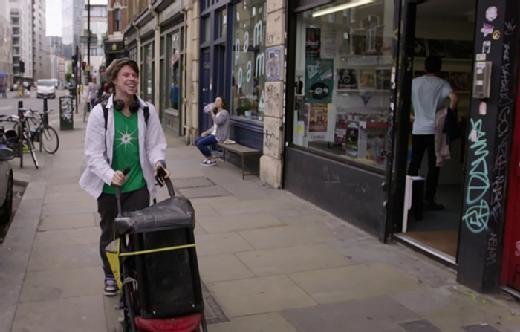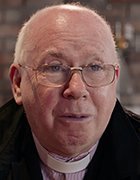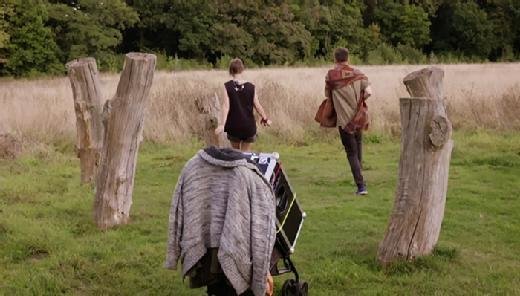
Citizen Love: the story of an ordinary family's fight with the US government
Finnish documentary makers Raimo Uunila and Lauri Danska tell the behind-the-scenes story of activist Lauri Love’s battle with the US government – and the impact of the case on his family
Natasha Love always thought her older brother Lauri Love would do something spectacular with computers. “He was so clever with them, even when he was really young,” she says. “I didn’t think the spectacular would be like this.”
When officers from the National Crime Agency – the UK’s equivalent of the FBI – raided the house in the rural town of Stradishall, Sussex, where Lauri lived with his parents, in October 2013, the family turned to Natasha for help.
“My mum called, I think it was the day after the arrest, and told me what had happened before it got into the news. And they had nothing with which to access the internet – no computers, phones, anything,” she says.
Working from her home in Finland, Natasha managed to track down Gary McKinnon’s mother, who had helped her son fight a successful 10-year battle against extradition to the US on hacking charges in the 1990s. She put the Loves in touch with her son’s lawyers.
Now Lauri faces extradition and life imprisonment for allegedly hacking into multiple US agencies – including the FBI, the US Federal Reserve and the Missile Defence Agency – during a protest against the US court system’s treatment of internet pioneer and activist Aaron Swartz.
The Love family’s story has been captured by film makers Raimo Uunila and Lauri Danska in a documentary for Finnish television. Their film, Citizen Love, chronicles the devastating impact of the UK’s one-sided extradition law on the Love family.
Reverend Love: I might never see Lauri again
Lauri’s father, Reverend Alexander Love, a prison chaplain, and his wife, Sirkka-Liisa, fear that Love, who has been diagnosed with depression and Asperger syndrome, will kill himself rather than face life in a US prison.
“I have a chronic heart condition. I have had a triple bypass. My son might be in America for goodness knows how long. I might never see him again after they take him away,” says his father.
Natasha is close to Lauri, and understands him better than his parents. They spent most of their time as children playing together, writing computer games and playing in dens. From an early age, she tells the film makers, it was clear that Lauri was unusually intelligent.
Computer genius who does not understand social rules
He dazzled his primary school teachers with his knowledge of science. He helped his sister write a computer program to mimic a computer virus infection so she wouldn’t have to complete her computer science project.
“He was always doing much better than anyone else at school. They got him a special maths tutor in primary school because he was way ahead of everyone else in the class, but he was completely lacking in common sense, just understanding social rules,” she says.
Later, he scored 100% in a physics exam during his A-levels – a feat his teachers said was impossible. He went on to win a place at Cambridge University, only to drop out after a term, with glandular fever – forcing him back to live with his parents.

“He was always doing much better than anyone else at school, but he was completely lacking in common sense”
Lauri Love’s sister Natasha
It was the first indication that there was something wrong. Despite his brilliance, the 32-year-old has not managed to fully leave the family home since.
“He would phone me up asking advice about the stupidest things,” says Natasha. “He phoned up and he had some meat that had gone grey, and he did not know whether it was safe to cook.”
The only ‘hacker’ in town
Life for the Loves in rural Suffolk contrasts eerily with the unspoken threat of life imprisonment hanging over Lauri. There are scenes of Lauri mowing the lawn, frying breakfast and pushing loud speakers – which go everywhere with him – around the park in a pushchair.
The music was a problem for the documentary makers, who had to find ways of politely asking him to turn his speakers down so they could film.

Why does he do it?
“Most people don’t have very big ambitions generally about life, so they are happy to play music in their own little world,” he says. “It cuts them off from other people because we are programmed to be anti-social and selfish. I like to play music for other people, to make other people happy so I can interact with them, break the monotony of their existence.”
At first, Lauri seems more concerned about the inconvenience of having his passport confiscated – which meant he could not attend computer and security conferences in Berlin – than the prospect of extradition.
The cameras follow him as he travels to the police station in Bury St Edmonds, wearing an outlandish rabbit hat with floppy ears, to report in for bail.
The microphones stay on as he enters the station, capturing Love’s banter with the desk officer – a trick that would probably fall foul of broadcasting regulations in the UK. “You look a bit devilish,” she says, commenting on the hat. “Not in a bad way, I hope,” says Lauri. “No,” she reassures him, “like mid-summer’s night.”
It’s in the papers – it must be true
It is often only when the papers start reporting a story that families understand what is really at stake. The seriousness of the case had clearly hit home for Alexander Love by the time he gave an interview for BBC radio in summer 2016.

“When Lauri says he will kill himself if taken to America, I believe him”
Lauri Love’s father Alexander
“I know that I am his father, and you might say that I am biased, but I work with people who are vulnerable at times,” he says. “When Lauri says he will kill himself if taken to America, I believe him to be stating something he intends to do.”
By now, the press are clamouring to cover the case, and the Daily Mail is running a campaign for Lauri Love to be tried in the UK.
Lauri’s power to charm
Westminster Magistrates’ Court is packed with Love’s friends and supporters when the hearings begin on 28 June 2016. Love’s parents are exhausted, having shared a hotel room with Lauri, who spent the night scratching and bleeding due to stress-induced eczema.
But Lauri himself is impressive, cleverly avoiding traps presented by the prosecution barrister during cross examination, and appears to charm the judge Nina Tempia.
.
Filming is prohibited in court, so we see none of this in the documentary. The court scenes are retold through a series of tweets from Love’s friends and supporters.
Love talks about Aaron Swartz and his political activism. The prosecutor asks whether Love is using his “manageable disadvantages” as a “shield in court”. Love tells the judge: “I have no illusions I’ll get a fair trial in the US…if I am to have justice, I will have it here in the UK.”
Love’s father is incensed when the prosecutor asks why Lauri has not seen the medical experts cited in the case for treatment for his psychological problems. “I wanted to shout out at that point, because the waiting list is too long, and there is not the money available,” he says later.
Outside, the documentary makers film Love facing the film crews and the scrum of reporters. Lauri understands the media game, and displays incredible patience when talking with journalists, though he does not like the intrusion.
“Splay me on a table for display so that we can muster enough sympathy to stop a terrible thing from happening that should not happen to any person,” he says at one point.
Celebrating in the pub
Lauri, his supporters and his legal team gather in the Victoria Pub after the hearings. As a skiffle band plays, his lawyers are feeling cautiously optimistic that the case is going their way. Tor Ekeland, Lauri’s US attorney, argues that Lauri is the fall guy for a much wider problem with the US government’s approach to computer security.
We learn that Lauri is accused of accessing US government computers using a software vulnerability that had been well known for at least five months, and presumably could have been patched by competent systems administrators.
“Lauri Lives with his parents. He is not driving a Porsche. Nobody made any money out of this. Really what this is about is them being embarrassed, his real offence is to embarrass the US government,” says Ekeland.
“Other people, besides Lauri and his alleged co-conspirators, were in those systems and cleared them out. But they can’t get those guys because it’s the Chinese, or the Russians, or the Eastern Europeans,” he says. “Lauri is the scapegoat.”
Changes in the wind
When the family gathers for the final hearing, the atmosphere is palpably different. Lauri is locked into a glass witness enclosure. “That is the first time that has happened,” his mother tells a reporter.
It is 16 September, the day of the verdict. The judge’s chumminess has vanished. She announces her decision, hands Love a single copy of the judgement and hurries out of the court room. Lauri Love can be extradited to the US.
Outside, the documentary crew, unable to film the events in court, are waiting to film the family’s reaction.
Lauri, holding back the tears, is scrupulously polite when he reports back to the waiting cameras. “I thank the judge for giving us the opportunity to win at a higher court and set a stronger precedent,” he says. “So I think this only helps the causes of securing better justice.”
Love’s father is devastated. “It is my belief that it is not fair or just that a boy who has got mental health issues can be taken away from his family, who are his support network, merely to satisfy the desire of Americans to exact what I feel is vengeance on him,” he says.

The ordeal is not over. Love and his legal team have filed an appeal against the court’s decision to allow extradition, and the case is likely to be heard in spring 2017. It could go as far as the Supreme Court and, eventually, the European Court of Human Rights in Strasbourg.
The film ends with Lauri and his girlfriend, Sylvia, walking through Nowton Park in Bury St Edmunds. Sylvia, in bare feet, pushes Lauri’s heavy sound system through the trees, as they look for good a place to sit down.
“I don’t know how long they have known each other. She is nice though,” says Natasha. “Hopefully love wins in the end.”
Hacking film turns into a fly-on-the-wall documentary
The film makers, Lauri Danska and Raimo Uunila, originally set out to make a film on the technical aspects of computer hacking, and Lauri Love’s work of Hacker House, where he used his computer skills to improve security for the organisation’s clients.
Once underway, however, the story took a different turn, and the result is a film that captures the harrowing impact of Britain’s one-sided extradition treaty on an ordinary family, and their extraordinary son.
The film makers, who set up a production company, Grape Productions, just a year ago, have stayed with the family, and have gradually come to understand Lauri Love, through long conversations with his sister, Natasha.
Lauri knows lots of people, but has no best friends, his mother Sirkka-Liisa confides. He doesn’t talk much about his feelings or emotions, making him hard for other people to fathom.
“Lauri is quite different to most of us. He is very much in his own world, and it is difficult for other people to see what he is dealing with,” says Danska. “Looking back on it, I think he is struggling to find his place in life,” says Raimo.
They hope the 50-minute film, shown on Finland’s main TV channel, will raise Love’s profile in Finland, where the case has attracted some press interest, and perhaps help in his fight against extradition.
“His ability to sustain pressure is quite remarkable. It’s a terrible situation,” says Danska.
The film is necessarily one-sided. The US did not put forward any evidence in court and declined to make any officials available for interview. Neither did the UK’s National Crime Agency.
If there is a flaw with the film, it is that it skips over the allegations against Love and the court decisions rather too quickly.
The UK legal system bars filming in court, so we learn through snatches of conversations and tweets just what it is that Lauri Love is facing. But it can be difficult to follow for those not familiar with the case.
Danska and Raimo made the film over the course of a year, travelling between Finland and the UK about once a month to shoot the footage. The documentary is in English, though at points Lauri Love speaks to the audience in Finnish.
Now Danska and Raimo are seeking financing for a follow-up documentary that could be shown more widely, potentially in the UK and the US.
“We just followed him. The audience can decide what they make of him. That is the only thing we have really. I hope people can make up their own minds,” says Danska.






